 Hiring seasonal help for the holidays is much different from when a company hires to fill a position or two during the “regular” times of the year. During what I have traditionally called the 4th quarter, seasonal help is being brought on board for the express purpose of having enough staff to meet increased customer traffic. These employees are hired with the knowledge they will probably lose their jobs at a specific time. During the rest of the year, an employee is hired with the expectation the position is a permanent job, in the sense it is long-term not necessarily part-time vs. full-time. This means there are certain considerations that an employer must think about as they hire seasonal employees:
Hiring seasonal help for the holidays is much different from when a company hires to fill a position or two during the “regular” times of the year. During what I have traditionally called the 4th quarter, seasonal help is being brought on board for the express purpose of having enough staff to meet increased customer traffic. These employees are hired with the knowledge they will probably lose their jobs at a specific time. During the rest of the year, an employee is hired with the expectation the position is a permanent job, in the sense it is long-term not necessarily part-time vs. full-time. This means there are certain considerations that an employer must think about as they hire seasonal employees:
- Do I have time to complete a background check or drug tests as I do with regular employees?
- What date am I going to release my employees from service?
- Do I tell the employee in advance what the termination date will be?
I am going to provide some guidance from a Loss Prevention perspective and hopefully make your decision making a little easier.
As a Loss Prevention Manager I participated in the seasonal hiring process, both interviewing candidates for the store and conducting mass orientation for new hires. One of the issues I saw was that when hiring started early enough, background checks could be conducted. This required the Human Resource Manager to begin the seasonal hiring ramp up in August, to prepare for a start date in mid-September to early October. When the process was started too late, people were sporadically interviewed and hired in twos and threes. I do not believe there was proper pre-employment screening done at those times. This meant we brought in people who we really did not know. Yes, a criminal can slip through the cracks during regular hiring, however I saw many more thieves hired during the last quarter of the year. I believe this was due, in part, to a less thorough screening process because the store needed “people”. Drug tests were always conducted and we did not hire anyone who failed. Do not compromise on this, even during the 4th quarter.
Should you set a release date for seasonal help in advance and should you tell your seasonal help what the exact dates of employment will be or should you leave it ambiguous? There are two schools of thought on this. One argument is that in fairness to the employee they should be told the starting and ending dates. It allows them time to prepare to look for work as they near the end of the seasonal appointment. The other argument and the one I prefer is to leave it a little vague, using an end date like “mid-January”. This serves two purposes. If you set a specific date of release, you are more or less obligated to end the employment then. The issue is that if you lose too many employees before the end of the 4th quarter and you need time to recover the store and prepare for the coming year, will you have enough staff to do so? Second, if your employee is a thief, and they know the exact end date they may use this as the day they are going to do the most damage and then be gone. When there is not a clear cut deadline, you can release them in that date range and avoid the chance the employee will make that final “hit”. I am not dogmatic on either philosophy, there are reasonable perspectives on both I just prefer to improve the odds for the employer.
One other thing I used to see during the hiring of seasonal help was the use of the quasi-promise, “If you do a good job, we may keep you on at the end of the season.” I saw many people hang onto this statement and become very discouraged when they were released. You may very well make offers of continued employment to workers after the holidays and that is fine. I believe in rewarding hard work. You may even make it clear to a group of new hires that you tend to keep some people after the 4th quarter is over, but don’t offer it as a dangling carrot.
In closing, prepare early for the holidays. Give yourself time to conduct pre-employment screenings, hire the right people and get them trained in time for your peak season. They will better serve your customers and you will have more time to determine who the cream of the crop is that you would like to keep on your team. You will also reduce the chance of hiring someone who will steal from your business.




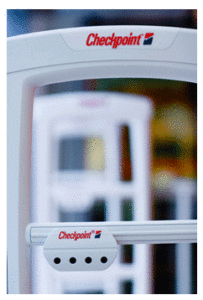 forbid a competitive system). It is installed and your shoplifting losses go down. They will! The simple act of installing a system will make a percentage of your shoplifters go elsewhere.
forbid a competitive system). It is installed and your shoplifting losses go down. They will! The simple act of installing a system will make a percentage of your shoplifters go elsewhere.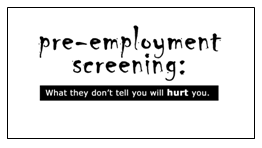


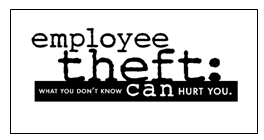 ch these live webinars as reasonably often as you need. Staff turnover, promotions, follow up training, one employee or fifty…. Just schedule the session. Oh, by the way. I will also provide you with 15 draft LP Policies and Procedures that you can customize to your operation. Shoplifting, employee theft, robbery, key control…..
ch these live webinars as reasonably often as you need. Staff turnover, promotions, follow up training, one employee or fifty…. Just schedule the session. Oh, by the way. I will also provide you with 15 draft LP Policies and Procedures that you can customize to your operation. Shoplifting, employee theft, robbery, key control…..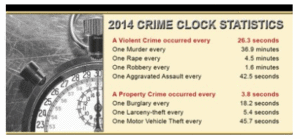
 If you work in retail then you know theft is a big problem. The theft of supplies, merchandise, time and money are just a few of the things managers have to deal with daily. They have to address it on many fronts (i.e., impulse and professional shoplifters, employees and their friends and families, vendors).
If you work in retail then you know theft is a big problem. The theft of supplies, merchandise, time and money are just a few of the things managers have to deal with daily. They have to address it on many fronts (i.e., impulse and professional shoplifters, employees and their friends and families, vendors).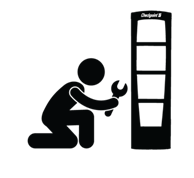 Retail alarms are necessary to ensure a store is protected against break-ins and even theft from within. I know from personal experience that they work. As a Loss Prevention Manager I once had to respond to a burglary alarm when two young men threw a cement block through the front doors of my store in the middle of the night. I also responded to a number of false alarms due to system errors and failures. As a Manager On Duty I know that it can be stressful wondering if you locked all the doors and set the alarm at the end of the night. With those situations in mind, I would like to provide some practical tips to help avoid excessive false alarms and worry about building security.
Retail alarms are necessary to ensure a store is protected against break-ins and even theft from within. I know from personal experience that they work. As a Loss Prevention Manager I once had to respond to a burglary alarm when two young men threw a cement block through the front doors of my store in the middle of the night. I also responded to a number of false alarms due to system errors and failures. As a Manager On Duty I know that it can be stressful wondering if you locked all the doors and set the alarm at the end of the night. With those situations in mind, I would like to provide some practical tips to help avoid excessive false alarms and worry about building security. What can make life miserable for a Human Resources or Hiring Manager? In the right circumstances, a Loss Prevention Manager can be the cause of much consternation for a Human Resources Manager. When more than one employee is being apprehended or fired for theft at the same time it requires shifting schedules, moving people around and hiring new people to take the place of the employees being removed. What makes it even more difficult for a retail H.R. Manager is if the employees work in a specialized job function. I confess (with a smile on my face as I write this) that I was responsible more than once for putting a Human Resource Manager in this predicament during my Loss Prevention Manager career. Don’t misunderstand, I was not taking pleasure in the misery of the Human Resource Manager or the Department Manager, for that matter; I was enjoying closing an investigation that netted around five employees in total, three who worked in the one area.
What can make life miserable for a Human Resources or Hiring Manager? In the right circumstances, a Loss Prevention Manager can be the cause of much consternation for a Human Resources Manager. When more than one employee is being apprehended or fired for theft at the same time it requires shifting schedules, moving people around and hiring new people to take the place of the employees being removed. What makes it even more difficult for a retail H.R. Manager is if the employees work in a specialized job function. I confess (with a smile on my face as I write this) that I was responsible more than once for putting a Human Resource Manager in this predicament during my Loss Prevention Manager career. Don’t misunderstand, I was not taking pleasure in the misery of the Human Resource Manager or the Department Manager, for that matter; I was enjoying closing an investigation that netted around five employees in total, three who worked in the one area.